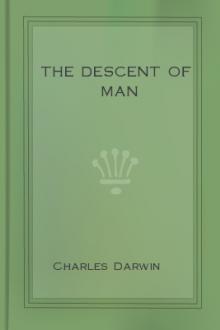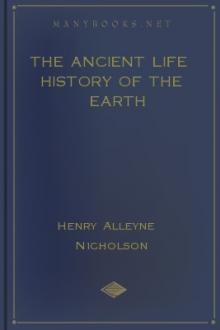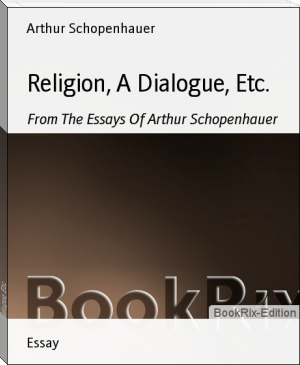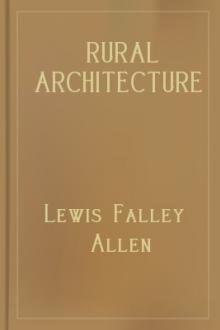Studies in Pessimism - Arthur Schopenhauer (books like harry potter .TXT) 📗

- Author: Arthur Schopenhauer
Book online «Studies in Pessimism - Arthur Schopenhauer (books like harry potter .TXT) 📗». Author Arthur Schopenhauer
there is nothing to interrupt, noise will not be so particularly painful. Occasionally it happens that some slight but constant noise continues to bother and distract me for a time before I become distinctly conscious of it. All I feel is a steady increase in the labor of thinking - just as though I were trying to walk with a weight on my foot. At last I find out what it is. Let me now, however, pass from genus to species. The most inexcusable and disgraceful of all noises is the cracking of whips - a truly infernal thing when it is done in the narrow resounding streets of a town. I denounce it as making a peaceful life impossible; it puts an end to all quiet thought. That this cracking of whips should be allowed at all seems to me to show in the clearest way how senseless and thoughtless is the nature of mankind. No one with anything like an idea in his head can avoid a feeling of actual pain at this sudden, sharp crack, which paralyzes the brain, rends the thread of reflection, and murders thought. Every time this noise is made, it must disturb a hundred people who are applying their minds to business of some sort, no matter how trivial it may be; while on the thinker its effect is woeful and disastrous, cutting his thoughts asunder, much as the executioner's axe severs the head from the body. No sound, be it ever so shrill, cuts so sharply into the brain as this cursed cracking of whips; you feel the sting of the lash right inside your head; and it affects the brain in the same way as touch affects a sensitive plant, and for the same length of time.
With all due respect for the most holy doctrine of utility, I really cannot see why a fellow who is taking away a wagon-load of gravel or dung should thereby obtain the right to kill in the bud the thoughts which may happen to be springing up in ten thousand heads - the number he will disturb one after another in half an hour's drive through the town. Hammering, the barking of dogs, and the crying of children are horrible to hear; but your only genuine assassin of thought is the crack of a whip; it exists for the purpose of destroying every pleasant moment of quiet thought that any one may now and then enjoy. If the driver had no other way of urging on his horse than by making this most abominable of all noises, it would be excusable; but quite the contrary is the case. This cursed cracking of whips is not only unnecessary, but even useless. Its aim is to produce an effect upon the intelligence of the horse; but through the constant abuse of it, the animal becomes habituated to the sound, which falls upon blunted feelings and produces no effect at all. The horse does not go any faster for it. You have a remarkable example of this in the ceaseless cracking of his whip on the part of a cab-driver, while he is proceeding at a slow pace on the lookout for a fare. If he were to give his horse the slightest touch with the whip, it would have much more effect. Supposing, however, that it were absolutely necessary to crack the whip in order to keep the horse constantly in mind of its presence, it would be enough to make the hundredth part of the noise. For it is a well-known fact that, in regard to sight and hearing, animals are sensitive to even the faintest indications; they are alive to things that we can scarcely perceive. The most surprising instances of this are furnished by trained dogs and canary birds.
It is obvious, therefore, that here we have to do with an act of pure wantonness; nay, with an impudent defiance offered to those members of the community who work with their heads by those who work with their hands. That such infamy should be tolerated in a town is a piece of barbarity and iniquity, all the more as it could easily be remedied by a police-notice to the effect that every lash shall have a knot at the end of it. There can be no harm in drawing the attention of the mob to the fact that the classes above them work with their heads, for any kind of headwork is mortal anguish to the man in the street. A fellow who rides through the narrow alleys of a populous town with unemployed post-horses or cart-horses, and keeps on cracking a whip several yards long with all his might, deserves there and then to stand down and receive five really good blows with a stick.
All the philanthropists in the world, and all the legislators, meeting to advocate and decree the total abolition of corporal punishment, will never persuade me to the contrary! There is something even more disgraceful than what I have just mentioned. Often enough you may see a carter walking along the street, quite alone, without any horses, and still cracking away incessantly; so accustomed has the wretch become to it in consequence of the unwarrantable toleration of this practice. A man's body and the needs of his body are now everywhere treated with a tender indulgence. Is the thinking mind then, to be the only thing that is never to obtain the slightest measure of consideration or protection, to say nothing of respect? Carters, porters, messengers - these are the beasts of burden amongst mankind; by all means let them be treated justly, fairly, indulgently, and with forethought; but they must not be permitted to stand in the way of the higher endeavors of humanity by wantonly making a noise. How many great and splendid thoughts, I should like to know, have been lost to the world by the crack of a whip? If I had the upper hand, I should soon produce in the heads of these people an indissoluble association of ideas between cracking a whip and getting a whipping.
Let us hope that the more intelligent and refined among the nations will make a beginning in this matter, and then that the Germans may take example by it and follow suit.[1] Meanwhile, I may quote what Thomas Hood says of them[2]: For a musical nation, they are the most noisy I ever met with . That they are so is due to the fact, not that they are more fond of making a noise than other people - they would deny it if you asked them - but that their senses are obtuse; consequently, when they hear a noise, it does not affect them much. It does not disturb them in reading or thinking, simply because they do not think; they only smoke, which is their substitute for thought. The general toleration of unnecessary noise - the slamming of doors, for instance, a very unmannerly and ill-bred thing - is direct evidence that the prevailing habit of mind is dullness and lack of thought. In Germany it seems as though care were taken that no one should ever think for mere noise - to mention one form of it, the way in which drumming goes on for no purpose at all.
[Footnote 1: According to a notice issued by the Society for the Protection of Animals in Munich, the superfluous whipping and the cracking of whips were, in December, 1858, positively forbidden in Nuremberg.]
[Footnote 2: In Up the Rhine .]
Finally, as regards the literature of the subject treated of in this chapter, I have only one work to recommend, but it is a good one. I refer to a poetical epistle in terzo rimo by the famous painter Bronzino, entitled De' Romori: a Messer Luca Martini . It gives a detailed description of the torture to which people are put by the various noises of a small Italian town. Written in a tragicomic style, it is very amusing. The epistle may be found in Opere burlesche del Berni, Aretino ed altri , Vol. II., p. 258; apparently published in Utrecht in 1771.
A FEW PARABLES.
In a field of ripening corn I came to a place which had been trampled down by some ruthless foot; and as I glanced amongst the countless stalks, every one of them alike, standing there so erect and bearing the full weight of the ear, I saw a multitude of different flowers, red and blue and violet. How pretty they looked as they grew there so naturally with their little foliage! But, thought I, they are quite useless; they bear no fruit; they are mere weeds, suffered to remain only because there is no getting rid of them. And yet, but for these flowers, there would be nothing to charm the eye in that wilderness of stalks. They are emblematic of poetry and art, which, in civic life - so severe, but still useful and not without its fruit - play the same part as flowers in the corn.
* * * * *
There are some really beautifully landscapes in the world, but the human figures in them are poor, and you had not better look at them.
* * * * *
The fly should be used as the symbol of impertinence and audacity; for whilst all other animals shun man more than anything else, and run away even before he comes near them, the fly lights upon his very nose.
* * * * *
Two Chinamen traveling in Europe went to the theatre for the first time. One of them did nothing but study the machinery, and he succeeded in finding out how it was worked. The other tried to get at the meaning of the piece in spite of his ignorance of the language. Here you have the Astronomer and the Philosopher.
* * * * *
Wisdom which is only theoretical and never put into practice, is like a double rose; its color and perfume are delightful, but it withers away and leaves no seed.
No rose without a thorn. Yes, but many a thorn without a rose.
* * * * *
A wide-spreading apple-tree stood in full bloom, and behind it a straight fir raised its dark and tapering head. Look at the thousands of gay blossoms which cover me everywhere , said the apple-tree; what have you to show in comparison? Dark-green needles! That is true , replied the fir, but when winter comes, you will be bared of your glory; and I shall be as I am now .
* * * *
With all due respect for the most holy doctrine of utility, I really cannot see why a fellow who is taking away a wagon-load of gravel or dung should thereby obtain the right to kill in the bud the thoughts which may happen to be springing up in ten thousand heads - the number he will disturb one after another in half an hour's drive through the town. Hammering, the barking of dogs, and the crying of children are horrible to hear; but your only genuine assassin of thought is the crack of a whip; it exists for the purpose of destroying every pleasant moment of quiet thought that any one may now and then enjoy. If the driver had no other way of urging on his horse than by making this most abominable of all noises, it would be excusable; but quite the contrary is the case. This cursed cracking of whips is not only unnecessary, but even useless. Its aim is to produce an effect upon the intelligence of the horse; but through the constant abuse of it, the animal becomes habituated to the sound, which falls upon blunted feelings and produces no effect at all. The horse does not go any faster for it. You have a remarkable example of this in the ceaseless cracking of his whip on the part of a cab-driver, while he is proceeding at a slow pace on the lookout for a fare. If he were to give his horse the slightest touch with the whip, it would have much more effect. Supposing, however, that it were absolutely necessary to crack the whip in order to keep the horse constantly in mind of its presence, it would be enough to make the hundredth part of the noise. For it is a well-known fact that, in regard to sight and hearing, animals are sensitive to even the faintest indications; they are alive to things that we can scarcely perceive. The most surprising instances of this are furnished by trained dogs and canary birds.
It is obvious, therefore, that here we have to do with an act of pure wantonness; nay, with an impudent defiance offered to those members of the community who work with their heads by those who work with their hands. That such infamy should be tolerated in a town is a piece of barbarity and iniquity, all the more as it could easily be remedied by a police-notice to the effect that every lash shall have a knot at the end of it. There can be no harm in drawing the attention of the mob to the fact that the classes above them work with their heads, for any kind of headwork is mortal anguish to the man in the street. A fellow who rides through the narrow alleys of a populous town with unemployed post-horses or cart-horses, and keeps on cracking a whip several yards long with all his might, deserves there and then to stand down and receive five really good blows with a stick.
All the philanthropists in the world, and all the legislators, meeting to advocate and decree the total abolition of corporal punishment, will never persuade me to the contrary! There is something even more disgraceful than what I have just mentioned. Often enough you may see a carter walking along the street, quite alone, without any horses, and still cracking away incessantly; so accustomed has the wretch become to it in consequence of the unwarrantable toleration of this practice. A man's body and the needs of his body are now everywhere treated with a tender indulgence. Is the thinking mind then, to be the only thing that is never to obtain the slightest measure of consideration or protection, to say nothing of respect? Carters, porters, messengers - these are the beasts of burden amongst mankind; by all means let them be treated justly, fairly, indulgently, and with forethought; but they must not be permitted to stand in the way of the higher endeavors of humanity by wantonly making a noise. How many great and splendid thoughts, I should like to know, have been lost to the world by the crack of a whip? If I had the upper hand, I should soon produce in the heads of these people an indissoluble association of ideas between cracking a whip and getting a whipping.
Let us hope that the more intelligent and refined among the nations will make a beginning in this matter, and then that the Germans may take example by it and follow suit.[1] Meanwhile, I may quote what Thomas Hood says of them[2]: For a musical nation, they are the most noisy I ever met with . That they are so is due to the fact, not that they are more fond of making a noise than other people - they would deny it if you asked them - but that their senses are obtuse; consequently, when they hear a noise, it does not affect them much. It does not disturb them in reading or thinking, simply because they do not think; they only smoke, which is their substitute for thought. The general toleration of unnecessary noise - the slamming of doors, for instance, a very unmannerly and ill-bred thing - is direct evidence that the prevailing habit of mind is dullness and lack of thought. In Germany it seems as though care were taken that no one should ever think for mere noise - to mention one form of it, the way in which drumming goes on for no purpose at all.
[Footnote 1: According to a notice issued by the Society for the Protection of Animals in Munich, the superfluous whipping and the cracking of whips were, in December, 1858, positively forbidden in Nuremberg.]
[Footnote 2: In Up the Rhine .]
Finally, as regards the literature of the subject treated of in this chapter, I have only one work to recommend, but it is a good one. I refer to a poetical epistle in terzo rimo by the famous painter Bronzino, entitled De' Romori: a Messer Luca Martini . It gives a detailed description of the torture to which people are put by the various noises of a small Italian town. Written in a tragicomic style, it is very amusing. The epistle may be found in Opere burlesche del Berni, Aretino ed altri , Vol. II., p. 258; apparently published in Utrecht in 1771.
A FEW PARABLES.
In a field of ripening corn I came to a place which had been trampled down by some ruthless foot; and as I glanced amongst the countless stalks, every one of them alike, standing there so erect and bearing the full weight of the ear, I saw a multitude of different flowers, red and blue and violet. How pretty they looked as they grew there so naturally with their little foliage! But, thought I, they are quite useless; they bear no fruit; they are mere weeds, suffered to remain only because there is no getting rid of them. And yet, but for these flowers, there would be nothing to charm the eye in that wilderness of stalks. They are emblematic of poetry and art, which, in civic life - so severe, but still useful and not without its fruit - play the same part as flowers in the corn.
* * * * *
There are some really beautifully landscapes in the world, but the human figures in them are poor, and you had not better look at them.
* * * * *
The fly should be used as the symbol of impertinence and audacity; for whilst all other animals shun man more than anything else, and run away even before he comes near them, the fly lights upon his very nose.
* * * * *
Two Chinamen traveling in Europe went to the theatre for the first time. One of them did nothing but study the machinery, and he succeeded in finding out how it was worked. The other tried to get at the meaning of the piece in spite of his ignorance of the language. Here you have the Astronomer and the Philosopher.
* * * * *
Wisdom which is only theoretical and never put into practice, is like a double rose; its color and perfume are delightful, but it withers away and leaves no seed.
No rose without a thorn. Yes, but many a thorn without a rose.
* * * * *
A wide-spreading apple-tree stood in full bloom, and behind it a straight fir raised its dark and tapering head. Look at the thousands of gay blossoms which cover me everywhere , said the apple-tree; what have you to show in comparison? Dark-green needles! That is true , replied the fir, but when winter comes, you will be bared of your glory; and I shall be as I am now .
* * * *
Free e-book «Studies in Pessimism - Arthur Schopenhauer (books like harry potter .TXT) 📗» - read online now
Similar e-books:





Comments (0)